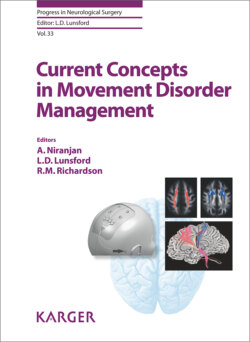Читать книгу Current Concepts in Movement Disorder Management - Группа авторов - Страница 74
На сайте Литреса книга снята с продажи.
Chorea
ОглавлениеChorea is a hyperkinetic movement disorder consisting of involuntary brief movements that tend to flow randomly between body regions. Chorea can be caused by a large variety of diseases including neurodegenerative diseases, metabolic diseases, and autoimmune diseases, or can be secondary to structural changes. Therapeutic approach is prevalently symptomatic, has the goal to improve the functionality and includes medications such as dopamine-depleting agents (tetrabenazine), antipsychotic drugs, benzodiazepines, glutamate antagonists [23, 24]. When choosing an intervention, clinicians should consider the eventual presence of behavioral and cognitive issues frequently associated with chorea and responsible of further disability. If patients suffer from neuropsychiatric symptoms besides chorea such as depression, psychosis, aggression, or compulsive behavior, it is advisable to start with antipsychotic drugs (off-label), such as tiapride, olanzapine, and quetiapine. On the contrary, in patients without neuropsychiatric symptoms, tetrabenazine is suggested as the first-line therapy. Conflicting results are available for amantadine and riluzole [23, 24].
